Ever hopped into your car, turned the key, and then… your steering wheel feels like it’s glued in place?
Yep, we’ve all been there, and it’s frustrating. One moment you’re cruising smooth, the next you’re wrestling with the wheel just to make a simple turn.
Whether it’s happening when you start your car, during cold mornings, or only while parking, it’s not something you want to ignore.
So, what’s really going on under the hood?
In this article, we’ll break down the real reasons your steering wheel is acting up and how to fix it before it gets worse.
Why does my steering wheel make it hard to turn?
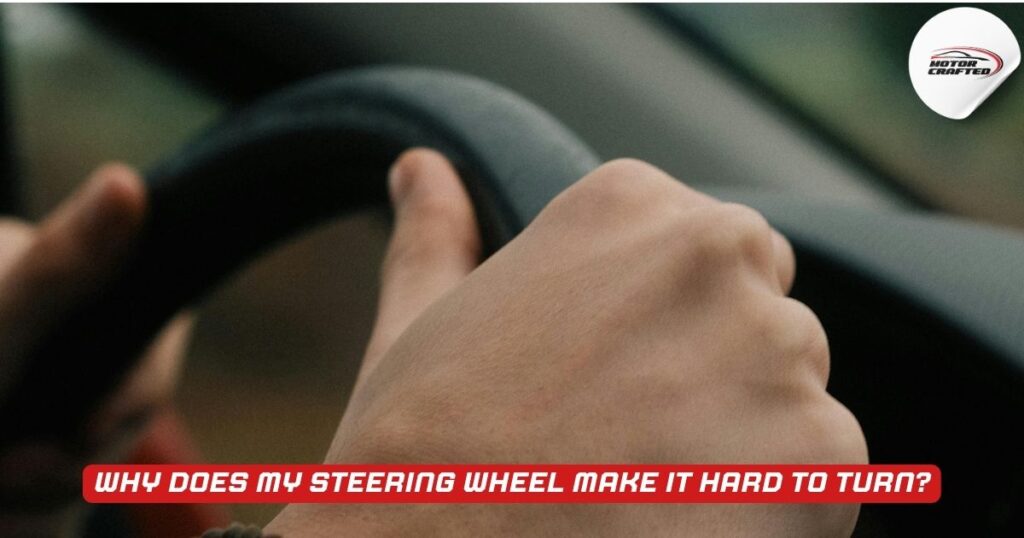
When your steering wheel suddenly becomes difficult to move, it’s a sign that something is off in your steering or suspension system.
The most common culprit? Low power steering fluid. This hydraulic fluid is essential in making sure your wheel turns smoothly.
If it’s low, contaminated, or leaking, the wheel can feel heavy or stiff.
Another possible reason is worn-out or slipping drive belts. These belts help power the power steering pump.
If they’re damaged or loose, the pump can’t do its job properly, and you’ll feel it in your wheel.
Sometimes, cold weather can also temporarily make your steering harder—fluids thicken in the cold, causing temporary stiffness.
Mechanical issues like a failing power steering pump, damaged steering rack, or dry ball joints can also create resistance.
If you hear whining noises while turning, it might indicate a deeper mechanical failure.
Ignoring these signs could lead to complete steering failure, a major safety risk.
Always take note of when and how the stiffness happens (like during turns or only at startup), as it helps pinpoint the issue faster.
What are the things that can cause hard steering?
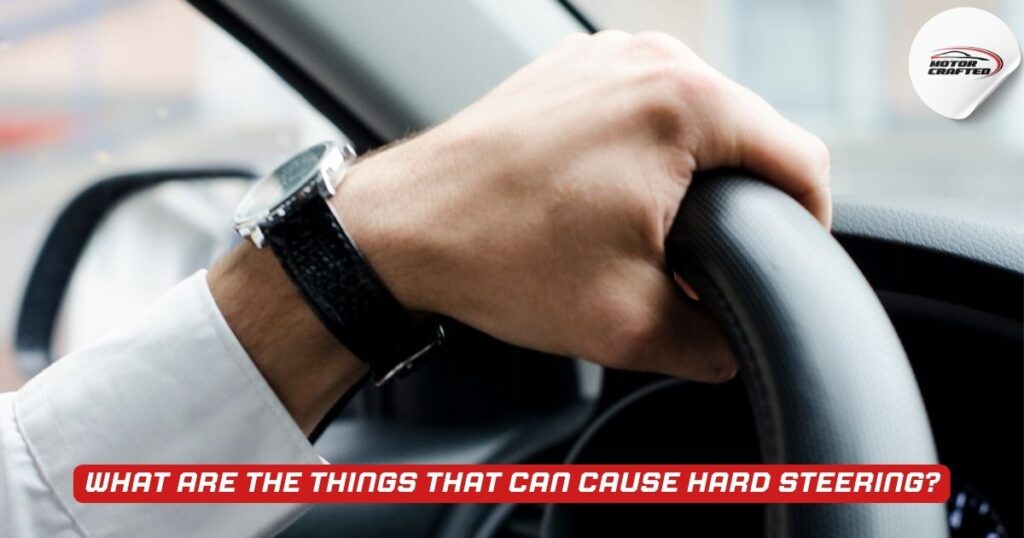
There’s a list of culprits when it comes to hard steering, and each tells a different story about your vehicle’s condition. Let’s break them down:
Low or Leaking Power Steering Fluid
This is hands down the most common issue. Over time, hoses may crack or seals may wear out, leading to leaks.
Without enough fluid, the hydraulic system that assists your steering loses pressure, and the wheel becomes tough to turn.
Worn Power Steering Pump
The pump generates the pressure needed for steering assistance. If it’s failing, you might hear grinding or whining noises when turning. It’s not just annoying, it’s dangerous.
Damaged Serpentine Belt or Drive Belt
The belt drives the power steering pump. If it becomes loose, worn, or broken, it can’t spin the pump effectively, leading to steering stiffness.
Steering Rack Issues
The rack connects the steering wheel to the wheels of your car. If it’s worn out, especially in older vehicles, you may notice hard steering when starting the car, which gets better as the car warms up.
Alignment Problems
If your wheel alignment is off, it could place extra stress on the steering components, making your wheel feel heavy or unresponsive.
Tire Pressure
It might sound basic, but under-inflated tires can actually cause your steering to feel stiff. Make sure your tires are filled to the correct PSI.
Each of these causes is linked to wear and tear, neglect, or just plain age of your car.
Being aware of these signs early can save you from costly repairs and keep your steering butter-smooth.
How do you fix a steering wheel that’s hard to turn?
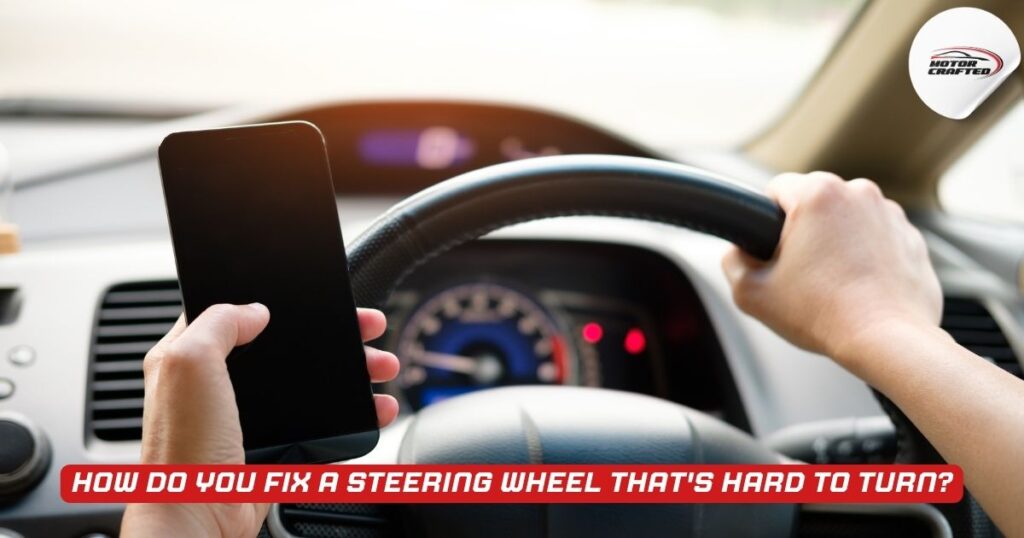
Fixing a hard-to-turn steering wheel isn’t always as complicated as it seems. The first step is identifying what’s causing the issue.
Start by checking your power steering fluid. Pop the hood and locate the fluid reservoir.
If it’s low, refill it with the correct type of fluid (usually mentioned in your car’s manual).
Keep an eye out for leaks underneath your car, they’re usually pink or red puddles.
If your fluid level is fine but the problem persists, inspect the drive belts.
If they appear cracked, glazed, or loose, they might need tightening or replacing.
For issues related to the power steering pump, listen for any strange noises when turning the wheel.
A whining or grinding noise usually points to pump failure.
In this case, you’ll need a mechanic to inspect and possibly replace the pump.
If alignment or suspension seems to be the cause, take your car to a professional for a wheel alignment check.
Misalignment doesn’t just make turning hard; it wears your tires unevenly and decreases fuel efficiency.
Also, don’t forget the tires. Use a tire pressure gauge to ensure they’re inflated properly.
If everything seems fine and the problem still lingers, it’s worth getting a full steering and suspension system diagnostic at a trusted repair shop.
Sometimes, the fix is simple; other times, it might require replacing more complex parts like the steering rack or ball joints.
Can I still drive with a stiff steering wheel?
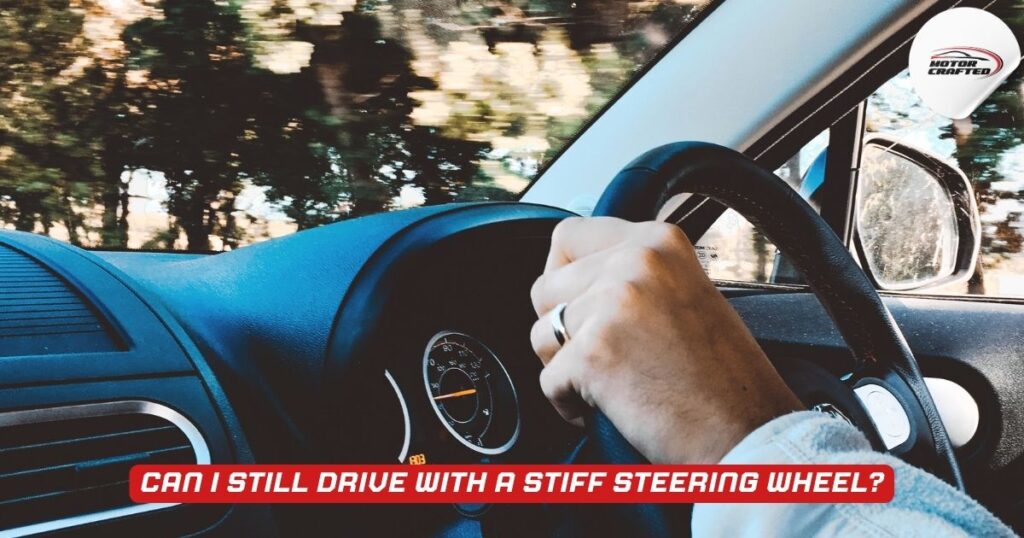
Technically, yes, but you absolutely shouldn’t.
Driving with a stiff steering wheel is not just uncomfortable, it’s dangerous. When steering is hard, it slows down your reaction time, especially in emergency situations.
If you’re trying to swerve around a hazard or make a sudden turn, the resistance can prevent you from moving fast enough.
Also, continuing to drive with the issue can lead to further damage.
For instance, a failing power steering pump or low fluid level can cause other components to wear out faster, turning a small repair into an expensive one.
Another concern is driver fatigue. You’ll find yourself physically fighting the wheel, especially during turns or in parking situations.
Over time, this can lead to poor control, especially if you’re caught off guard on a curve or in bad weather.
Finally, if the issue lies within your steering rack or column, it could suddenly lock up completely, making the car virtually undrivable.
That’s a scenario you absolutely want to avoid.
So, while you can limp your car to a mechanic, it’s best to avoid driving it altogether until the problem is properly diagnosed and fixed.
Safety should always come first.
Conclusion

When your steering wheel feels stiff or hard to turn, it’s your car’s way of saying, “Hey, something’s not right.”
From low power steering fluid to a worn-out pump or poor alignment, there are several things that could be behind the issue.
The key is to catch these problems early and address them before they spiral into costly repairs or, worse, put your safety at risk.
Don’t ignore the signs. A car should steer smoothly; anything less is a red flag.
Whether you’re a DIY kind of person or prefer leaving it to the pros, knowing what’s happening behind that wheel can make all the difference.
Keep it safe, keep it smooth, and if your steering wheel’s giving you grief, now you know exactly what to do.
Frequently Asked Questions
What happens if I ignore a stiff steering wheel?
If you ignore a stiff steering wheel, the issue will likely get worse over time. What starts as minor resistance could lead to complete power steering failure, making your car dangerous to drive.
You also risk damaging other components like the power steering pump, serpentine belt, or steering rack, which can lead to costly repairs. It’s always safer and cheaper to address the issue early.
Can cold weather make my steering wheel hard to turn?
Yes, cold weather can temporarily cause your steering wheel to feel stiffer than usual. In lower temperatures, power steering fluid can thicken, making it less effective at lubricating the system.
This usually resolves as the car warms up, but if the stiffness continues, it could be a sign of deeper mechanical issues that need attention.
How much does it cost to fix hard steering issues?
The cost depends on the root cause. Refilling power steering fluid may cost under $20 if you do it yourself.
However, replacing a power steering pump could cost $300–$800, while a steering rack replacement might go up to $1,000 or more.
It’s best to get a proper diagnosis to avoid unnecessary repairs.


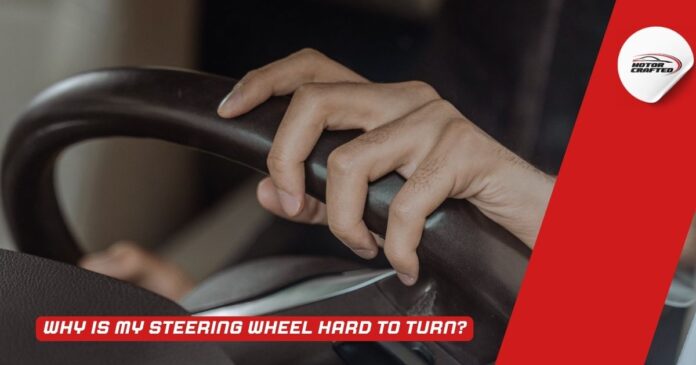

![How To Learn About Cars [2025 Guide] How To Learn About Cars](https://motorcrafted.com/wp-content/uploads/2025/07/How-To-Learn-About-Cars-100x70.jpg)

